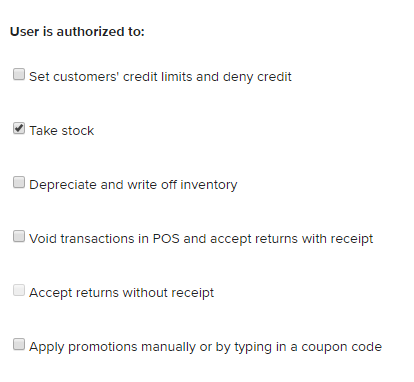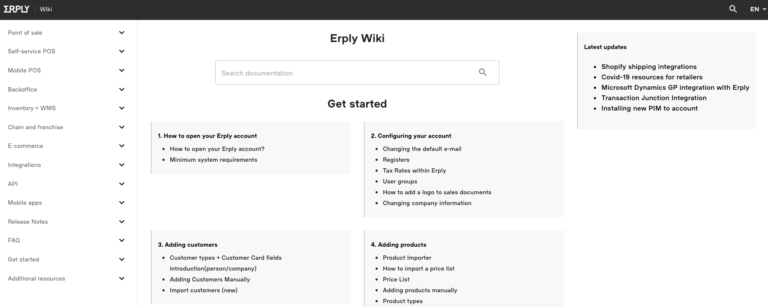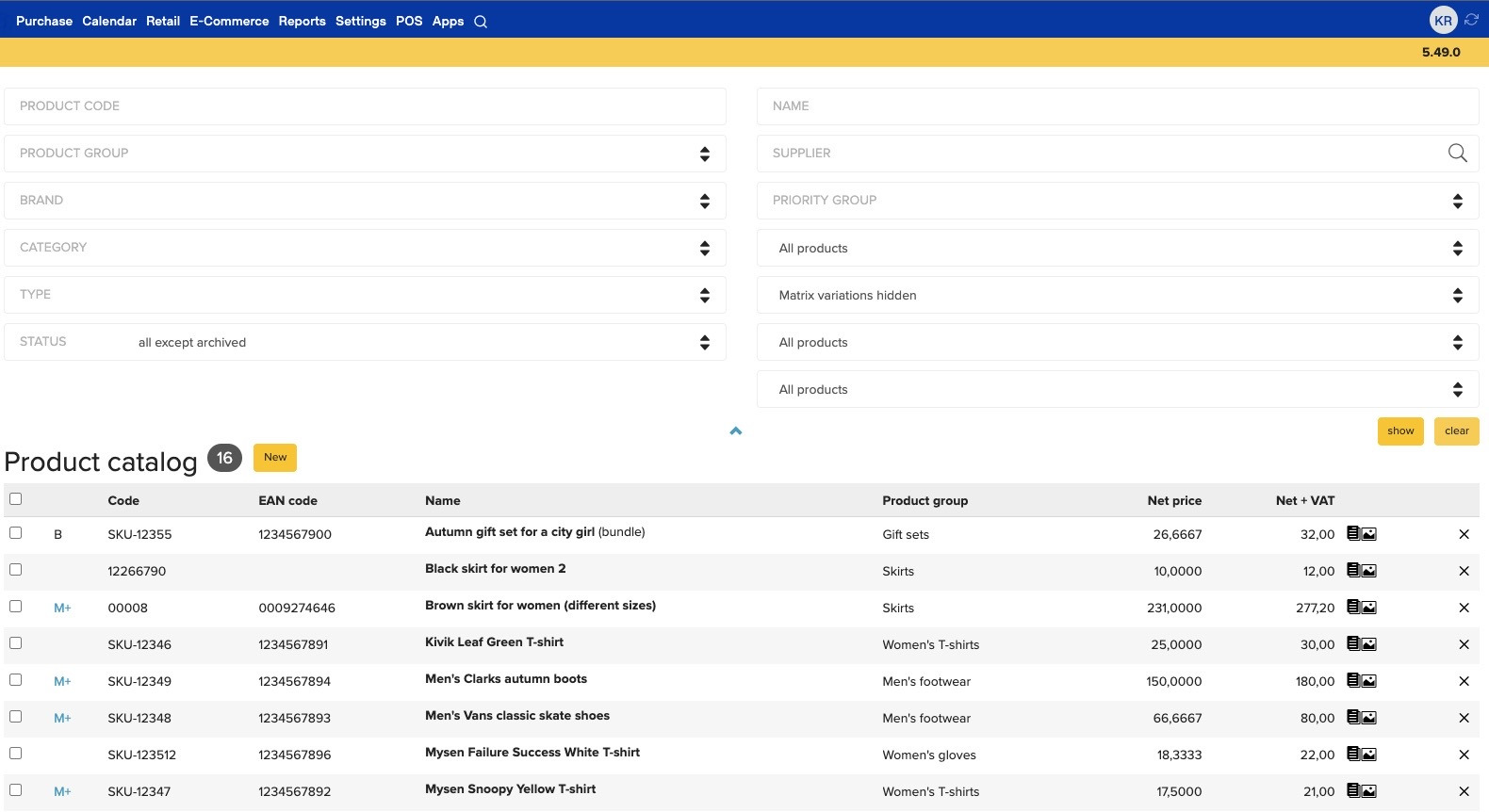Many small retailers feel as though they could never compete with big business in terms of offering great savings or wide ranges of products. But just because you are a small business doesn’t mean you don’t have plenty to offer. In fact, there are some unique strengths that small retailers have that large corporations could never replicate. Here’s how you can optimize on those strengths to make your business a force to be reckoned with, despite your size.
Specialized Knowledge
As a small retailer, you have a unique advantage over large retailers in that you can capitalize on being an expert on your products. First, as a huge retailer, a business can’t afford to do highly specific training on one product for all their employees. Instead, they split up into teams that each specialize in one area of the store; but even then, each area may have dozens or hundreds of products. As a smaller retailer, you can afford to specialize in what it is you sell, and paint yourself as the local expert for matters related to your business.
There are two great ways to use this strength to draw in customers. The first is to start a blog. Online shoppers can be converted to in-store shoppers if you present enough evidence that your advice and help is worth the trip. Write articles showcasing your expertise so that browsers are convinced that you are who they need to talk to. Answer questions on social media as well, and start conversations with your followers that showcase your experience with the products.
The second way to use this specialized knowledge that big businesses can’t is to host educational classes or sampling events. As a small retailer, your local competition for what you specifically sell probably isn’t that large. While anyone could go to the supermarket for a bottle of wine, you may specialize in a specific local brew. If a big supermarket had a tasting event, there’s no guarantee that their shoppers won’t come, taste the wine, and then later purchase the bottle elsewhere. However, your shoppers don’t have that opportunity, since there are fewer places to buy what you sell.
Customer Service
One way that you can blow the big guys out of the water is through amazing customer service. Big retailers simply have too many customers to truly offer personalized service. They are focused more on groups of customers, target audience subgroups, and so on, rather than what each individual shopper’s experience is like.
But as we all know, feeling special makes customers come back time and time again. This goes beyond greeting customers at the door. As a small retailer, you have the time to ask customers questions about their needs, get to know what they prefer, and help them browse through many options. And you don’t have to remember all this in your head. As you gain the loyalty of more customers, you can easily create a loyalty program that retains some of your customer knowledge in a database. Erply has a built-in loyalty program with digital customer cards where you can store information that you’ve gathered.

With Erply’s built-in loyalty program, you can decide how many reward points a customer earns with each purchase, and how those points can be redeemed.
Even if you are online only, you can still offer this “friendly small town” customer service. Because big businesses have to cater to so many email addresses from so many different kinds of people, they have to make their messages more generic. Because you are catering to a niche crowd, you can send out very personalized messages that truly get attention thanks to the actual content, rather than the marketing tactics.
More Flexibility to be Innovative
Once big retailers get big, they have shareholders and investors that all want a piece of the pie. These people aren’t interested in developing the company in new ways – they just want to use what they know has worked to keep creating revenue. And while there is some truth to the “if it’s not broken, don’t fix it” mentality, risks are what make the world of industry go ‘round.
As a small retailer, you have the opportunity to take risks that others wouldn’t. For example, say you sell hardware and DIY tools for weekend warriors and homeowners in your area. But then a big box store moves into the area that offers many of the same types of items at lower prices. You can’t afford to store huge warehouses full of product that allow them to offer such low prices, so how can you provide your customers with a more cost-effective way to buy? You might decide it’s time to take a risk and branch out into renting DIY tools in addition to selling them. This new service may be risky for a big business, who would have to factor in how to handle broken tools, theft, employee training, and more – but for you, on a much smaller level, it could be very doable and very profitable.
Another way that you can be more innovative than big retailers is in the way you advertise and connect with your audience. You can do things like sponsor local events or partner up with local businesses, without having to go through a long approval process with a corporate headquarters.
Easier to Get Involved in Community
Benefiting the local community is something that many big businesses can’t do. For example, Amazon may be taking over as a major retailer, but as an online-only business, they aren’t really getting involved with the area where a buyer lives. As a small, locally-owned business, you have the opportunity to focus on targeting your specific area. You can help create jobs, build the local economy, bring in tax dollars to support local infrastructure, and so much more.
To take full advantage of the power you have in your local area, you must get involved. Sponsor a little league team or a charity race, volunteer at events, get a booth at the street fair, and make your name known. But you can also do things like hiring local contractors when you need work done, or using locally-sourced ingredients for your products. All of this adds to the community and makes the economy stronger – which in turn, makes your customers more wealthy so that they can shop with you more often.
A study from Baylor University showed that areas with many local businesses that are highly involved in the community have higher income levels on average, fewer cases of unemployment, lower crime rates, fewer cases of juvenile delinquency, fewer instances of extreme income inequality, and lower levels of both diabetes and obesity. All of that, simply because small retailers like you got involved.
More Loyal Employees
At big corporations, employees are simply cogs in the machine. The turn over rates are high, and because so many employees are needed, it’s impossible to be much more than a number. In many large retail locations, unionizing is so strongly discouraged that it has become impossible for employees to feel represented as a human in the company at all.
As a small retailer, you can afford to invest in your most important asset. You can train employees thoroughly, get to know them, and find ways to encourage them in their growth through the company. This makes them feel more valued, and in turn, they will work harder. That makes your customer service improve, which makes sales improve. The ability to invest in your employees is a huge benefit of being a smaller retailer.
As a small retailer, you can also choose to utilize simple and more transparent systems that make employees feel like they are part of a team, rather than a warm body. For example, in Erply, the inventory system can be restricted to certain users, or accessible to anyone who needs it. Within the system, everything is updated in real time, so that all employees have the information they need. If a customer asks a cashier if something is in stock while checking out, the cashier doesn’t have to wait on a manager to get an answer – they’ll feel empowered by their ability to help because they can look it up right there. That’s a great way to encourage employees to take the initiative in customer service.


In Erply, you have a fine degree of control over the permissions you assign different employees. Who can access the back office? Who can edit information in the system?
Statistics show that employees at small retailers are far more engaged with their company than those at big stores.
Compared to big box store employees, the staff at small retailers are 11% more knowledgeable about product features that they are selling. And these same staff members at smaller retailers have the first-hand experience with over double the products as big-box retailers. Finally, store associates at small retailers spend about 127% buying the products they sell for personal use, compared to employees at large chain retailers.
All of that means that your customer service can definitely blow big-box retailers out of the water.
Lower Bills and Less Maintenance
You can’t deny that the smaller bills and fewer maintenance duties of a smaller retailer are big benefits. As a huge corporation, some businesses have to arrange for tons of warehouses and locations, which all require energy, lights, climate control, and more. You may have one or two stores, or you may have all your goods online. Your overhead is much more affordable, and you don’t have to worry about coordinating shipments to multiple locations, or figuring out zoning requirements for multiple locations, and so on. That allows you to focus your energy on customer service and innovative products.
Another reason this a big benefit is the way that local business licensing works. If you are opening a single bakery, you may just need a business license and an inspection. But a huge restaurant chain will need to discuss building planning with the city department, get construction permits, and so much more.
Take advantage of this fact by truly developing your business in ways that won’t increase your bills. Rather than expanding your building for new products and stock, consider opening an online store if you don’t already have one.
Another way to take advantage of this strength is to really diversify what products you do have. Since you don’t have so many bills, you can afford to take some risks and try, for example, a new flavor of the local brew. If your customers don’t like it, you didn’t waste several weeks of high overhead on essentially storing that item in your store. Being able to do more with your stock without weighing the risk of wasting expensive overhead allows you to grow as a business.
Easier to Act Quickly
Finally, one great strength of smaller retailers is the fact that they don’t have so many layers to get through for decision making. If you see that building opened up across town that would be ideal for a second location, you don’t have to go through a sometimes years-long process of presenting the data, getting board approval, getting a vote from shareholders, approaching the city planning department, and so on. Instead, you could sign a lease and be the owner of a second location relatively shortly.
While we don’t advocate for just jumping into rash decisions, it is a huge strength to be able to act quickly when you do find an exciting opportunity. By nature of being so large, huge corporations must act more slowly. You, on the other hand, are nimble enough to maneuver through the many doorways and paths that you could take.
Using Your Strengths
As a small retailer, you absolutely can still compete with huge corporations like Amazon and big box stores. You simply have to identify your own strengths and work with them, rather than trying to emulate the big retailers.
By making yourself the local expert, focusing in on customer service, getting innovative, building up your local community, supporting your staff, taking advantage of lower overhead, and enjoying a more direct path for opportunities, you can create an experience that will keep customers coming back to you every time.
Sign Up










